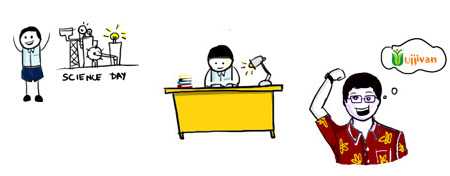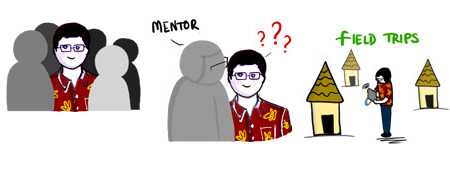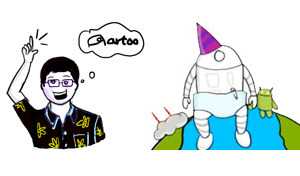
Once upon a time, Sameer was good boy, with neatly combed hair, who loved Science Day at school and so he decided to become an engineer. While he was at engineering college, Muhammad Yunus and Grameen Bank won the Nobel Peace Prize. Curious about this exciting new world of microfinance, Sameer read Banker to the Poor and eager to get in his foot in the door, he got a summer internship at Ujjivan (one of India’s most visionary microfinance institutions).
Ujjivan gave him a wonderfully open-ended project. He was to go out into the field, talk to their end customers, and come up with ways to improve their service quality. He was amazed by the lively, resilient, and wise working-poor women he met everyday. He would go to sleep each night imagining how Ujjivan could continue to improve the quality of their lives and wake up each morning with new ideas to suggest. He had a nagging sense that technology could do so much more for them and the small experiments he conducted that summer seemed to confirm this.

For example, Ujjivan offered its customers the opportunity to preclose their loans and take out new loans of higher amounts but field agents were unable to calculate the customer’s outstanding loan amount making this process a time consuming one. Seeing how money was such a volatile commodity for Ujjivan’s customers, Sameer wondered if there was a way to speed up the process and make it possible for customers to preclose when they had the money to pay up instead of having to wait about 15 days after their initial request until all the formalities were completed.
Sameer thought the best way to improve service quality for the customers would be to empower the field agents. He designed a simple software solution for preclosure using SMS technology. Field agents could just send an SMS with a customer ID to query the database and they would receive an instant reply with the exact amount to be paid by the customer to preclose the loan. Something that had taken 15 days could now be done in an instant. Sameer was thrilled by how happy his solution made Ujjivan’s customers, field agents, and senior management.
Just like that, Sameer discovered his passion for inclusive technology. He wondered why the world’s most intuitive technology wasn’t available to the people who needed it the most. Why weren’t iPhone like interfaces available to first-time technology users? Why wasn’t social enterprise software as slick and easy-to-use as Facebook? And, little by little, the idea of Artoo began to come together in his mind.
Because his passion was catching, Indus had begun to believe, as Sameer did, that technology could help social enterprises working at the BoP become bigger, brighter windows to the world for their end customers. A real window to the world was, she believed, the most effective way for those curious and creative working-poor women to begin their climb out of poverty. Together, they started Artoo in May 2010.
